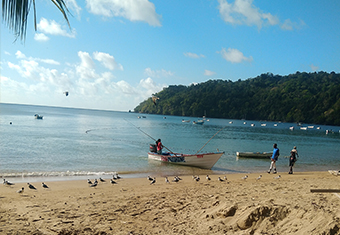

Abstract
Justice and equity in marine protected areas: understanding the differential impacts of marine threats and management actions within coastal communities
Understanding the dynamics between marine protected areas (MPAs), marine ecosystem threats, and impacts to coastal communities is a major challenge for marine conservation. This is particularly the case as hazards, such as rising sea temperatures, pollution, and ocean acidification, are expected to increase in magnitude and frequency and interact with novel threats such as microplastic pollution. These changes are occurring globally, and the United States Pacific Islands and Caribbean regions are not immune to their effects.
In order for MPAs to successfully mitigate these threats, decision-makers must understand the relationships between the threats, the ecosystem, and how people are differentially impacted. Further, there must be justice such that community members are meaningfully involved in the planning processes. Understanding these differential impacts will allow decision-makers to better consider tradeoffs between the marine ecosystems and human communities, as well as between different societal groups within the communities. In order for MPAs to best protect marine ecosystems and those who depend on them, it is essential that people and their well-being are accounted for in the decision-making, management, and adaptation processes.
